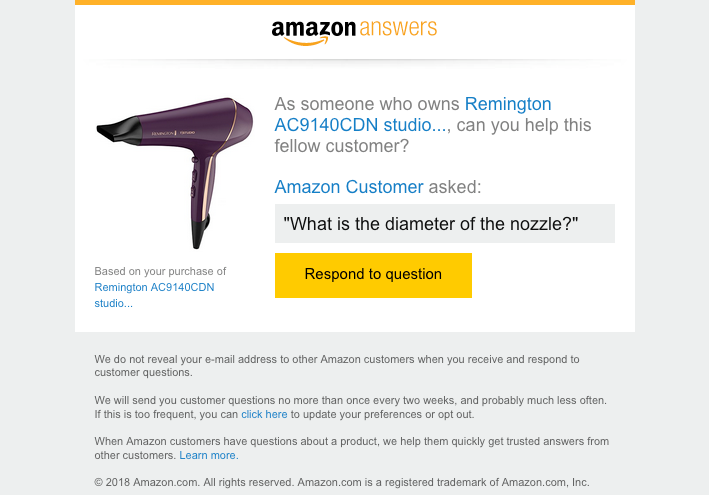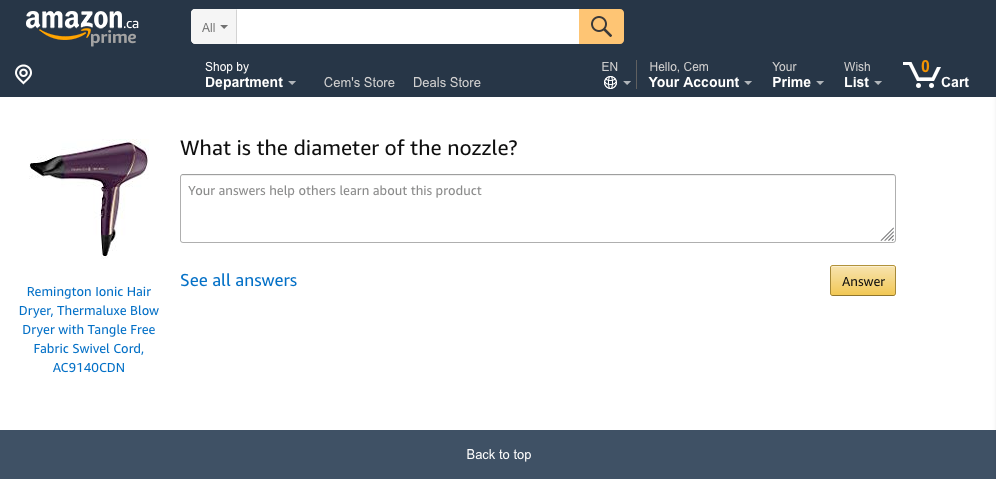The Amazon Unknowns: Don't AMA
Amazon has a really cool feature where users can ask questions regarding a product, and owners who have purchased those products can answer those questions…
Only problem is, the answers are almost always filled with “I don’t know”s, and it’s a noticeably common occurrence.
An odd thing on Amazon is the user Q&A where people politely respond to say they don't know the answer. I wonder if something about the "no answers yet" UI makes it seem like you should still respond? ("Be the first to answer!" or such.) pic.twitter.com/SG0RCrSYcq
— Neven Mrgan (@mrgan) April 19, 2018
Yes, it is.
— Cem Kesemen (@cemkesemen) April 19, 2018
I have been meaning to write something about this. There needs to be a secondary action button for “I don’t know.” pic.twitter.com/G0QVe69OXp
Why does this happen?
Amazon sends out emails to customers with no out.
This is the email received:

This is the page the button takes the user to:

There is no out.
Nowhere in the email or the answering page is there an information or a button that can take the user out of this flow.
Sure it doesn’t hold anyone hostage to answer, but it also gives no impressions that answering is optional.
How can it be fixed?
Easiest solution seems to be an “I Don’t Know” button, right1?
Realistically though, this is a numbers game. It’s a business problem, more than anything.
Amazon -presumably- doesn’t want to put anything in the email or the answering page that might let the user get off easy. Amazon wants people to try and answer, even if they are not sure.
The diameter of the hair dryer, compatibility of a cable with certain type of device, weight of a tool, or options to show values in metric values –you don’t know the answer? At least try to find out!
ML, AI, and all that jazz
So, on the one hand we have a user experience issue to solve, and on the other hand there is a business value that’ll be affected by the obvious solution. What do we do?
We throw a little more effort2 into the problem.
Allow answers to be voted
Currently, only question and answer groups can be voted. Answers cannot be voted separately from the questions. Thus, visitors are not given the option to mark an answer as useful or not.
Allowing answers to be voted would make it easier to filter out these useless answers.
Analyze the answers
There is a very distinct pattern to these “I don’t know” comments. People either flat out say that they don’t know, and even if not, they apologize.
Surely, an algorithm can sort this out with a high degree of accuracy.
- And probably a little more money. ↑